Last Updated on October 18, 2024 by Kirsten Raccuia
Before you travel to Malaysia, there are a few things you should know. Like how you point could be offensive or kissing your husband could make the locals uneasy.
This post is going to explain it all. These are all the dos and don’ts in Malaysia, the indispensable travel tips that you should know before you go.
It’s easy to find a travel guide for Malaysia. There are loads of blogs for that, including this post.
This is different. This is a list of the best travel tips to Malaysia. The ones that will teach you how to behave in Malaysia, so you don’t embarrass yourself or look like an ass. No one likes an ass.
Think of this list as Malaysian laws for tourists. Observe them, and you’ll love your time here.
Let’s dive into the dos and don’ts in Malaysian culture.
11 Don’t’s
1. Don’t confuse the terms Malay and Malaysian
They are very different, but it gets confusing for a lot of people.
Lemmie break it down.
Everyone who is from Malaysia is a Malaysian. But not every Malaysian is a Malay.
Malays are the largest ethnic group in the country. They are Muslim and speak Bahasa Melayu as their first language.
The Chinese and Indians, who came to Malaysia in the late 1700s, are Malaysians. They refer to themselves as Chinese Malaysian or Indian Malaysian. They are not Muslim, Bahasa isn’t their first language, and therefore they are not Malay.
Get it?
2. Don’t go there to party
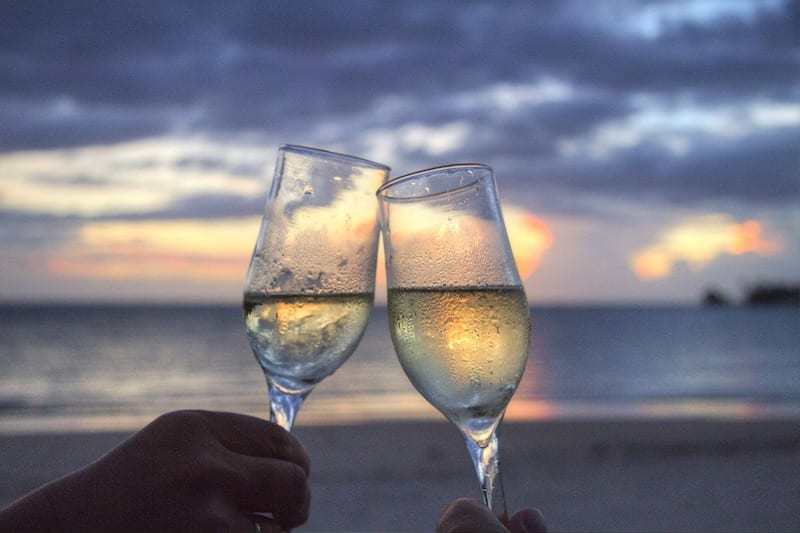
If you are looking for a party, look elsewhere. As a Muslim nation, however moderate it is, booze it taxed heavily here. You’ll spend more money on drinks than on your accommodations or food.
If you are looking for that kind of holiday, try anywhere else in Southeast Asia, but not Malaysia. The one exception is Langkawi Island. If you want to party and drink alcohol, go there. It is a duty-free island, everything is cheap.
3. Don’t take taxis – Grab yourself a ride
Malaysia doesn’t use Uber, instead, we have Grab. It works the same, but you can pay cash if you want. Taxis suck, they don’t use meters, and are too expensive, so avoid them at all costs. Other than buses, Grab is the cheapest and easiest way to get around.
4. Don’t shake hands with a Malay woman
Man to man handshakes are common. However, if you are meeting a Muslim woman, do not reach out to shake her hand. Physical contact between members of the opposite sex is not encouraged.
If she initiates the handshake, that is a different story, but generally speaking, females won’t.
Also, after Muslims shake your hand, they will touch their heart meaning, I greet you from my heart. It symbolizes the connection and understanding between you.
5. Don’t swap spit in public
Keep the face sucking to yourself, it’s frowned upon in public. A quick peck or hand-holding is ok, but more than that will make the locals uncomfortable or feel disrespected. No Bueno.
6. Don’t point with your forefinger
Using your forefinger to point is considered rude, I have no idea why, but use your thumb instead. Make a loose fist, and place your thumb over the bent knuckle of your pointer finger and point away.
7. Don’t Tip
Tipping is not part of the culture. And Malaysia isn’t service-driven; they don’t rely on tips to make a living. Believe me when I tell you, customer service or any service for that matter, isn’t that common here.
You won’t get great service at any hawker stall, but you’re not paying for it either at $1 a plate. You’ll get better service at a fancy restaurant, but even still, no tipping is necessary.
Coming from America where it is part of our culture and basically expected, it was a big change for us. When we first moved here, we left RM1 ($.25) on a table and walked out. The waiter came running after us to give it back.
The more tourism that Malaysia sees, the more tips are accepted. No one expects them, but they are appreciated for good service. If you round up a few cents to the beer lady for pouring your beers all night long, she’s happy.
We rarely tip unless it is well deserved, and even then, it’s only a few ringgit. We also think about how hard someone is working and how much that 1RM ($.25) means to us vs. them.
8. Don’t get offended
For some reason, asking personal questions is not considered invasive in Malaysia. When we first moved here, we were at a wine shop (priorities, people), and the wine seller asked us, “Where do you live?” A reasonable question, right? When we responded, she followed up with, “Ahhh, so expensive lah. You must make a lot of money. How much is your rent?”
I almost jetted wine out my nose.
9. Don’t raise your voice
Malaysians are not confrontational. No matter how frustrated you are, never get elevated. It won’t go over well, and you’ll look like an ugly tourist. Take a deep breath and revisit the situation. Shouting resolves nothing here.
10. Don’t do drugs
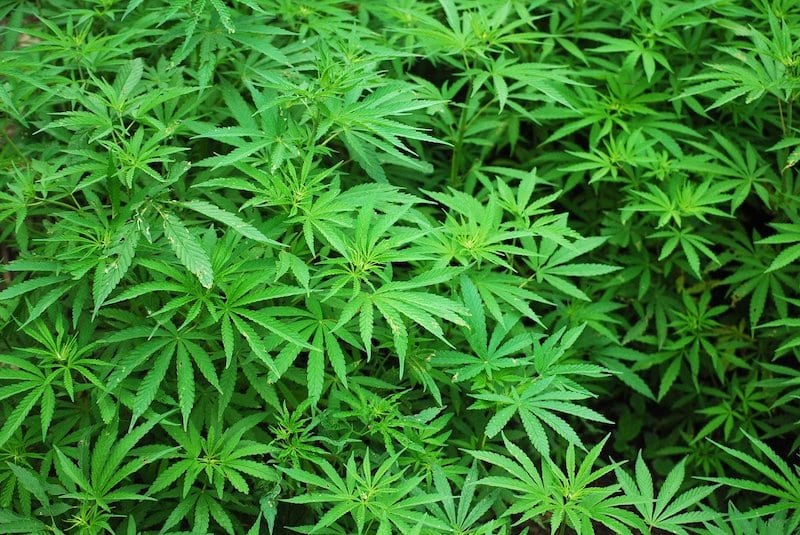
No…just no. They don’t take kindly to it and have no problem punishing you for it. So, no. Don’t do it. If you use CBD or smoke weed, even if it’s legal in your country, it is def one of the things not to bring to Malaysia when you come.
There has, however, been talk about legalizing it for medical use since Thailand passed that legislation in 2019. There were also chats last year about decriminalizing personal use but who knows if or when that might happen.
11. Don’t expect pork bacon
That bacon you’re eating, it’s not pork. Since the majority of the population is Muslim, they don’t eat pork. Many restaurants in Malaysia are halal, which means there is no pork. It also means the meat that is served has been slaughtered in a specific way and then blessed. It is very similar to kosher meat.
Unless you are in a Chinese restaurant, that bacon you are eating is beef or turkey.
14 Dos
1. Do learn Malaysian dining etiquette
Since there are three major ethnicities among Malaysians, each restaurant will have different utensils.
- A Malay stall will give you a fork and a spoon
- A Chinese-Malaysian restaurant will give you chopsticks and a spoon.
- An Indian-Malaysian establishment will probably offer a fork and spoon.
Most Indians will eat without utensils by using their RIGHT hand. Only their right hand. The left is reserved for the bad/dirty things like cleaning after going to the bathroom, so they keep it separate. And before you get all grossed out… I’m sure they wash both hands after going to the bathroom, but still, the right hand prevails for all the clean and good stuff.
If you are unsure what to do, watch the locals. Do what they do. It’s not easy to eat rice and curry with your fingers, but it’s fun to try.
2. Do dress respectfully
Here is the deal, Malaysians are moderate people. The Malay women wear a hair covering called a tudong. Usually with jeans, long pants, or a long skirt.
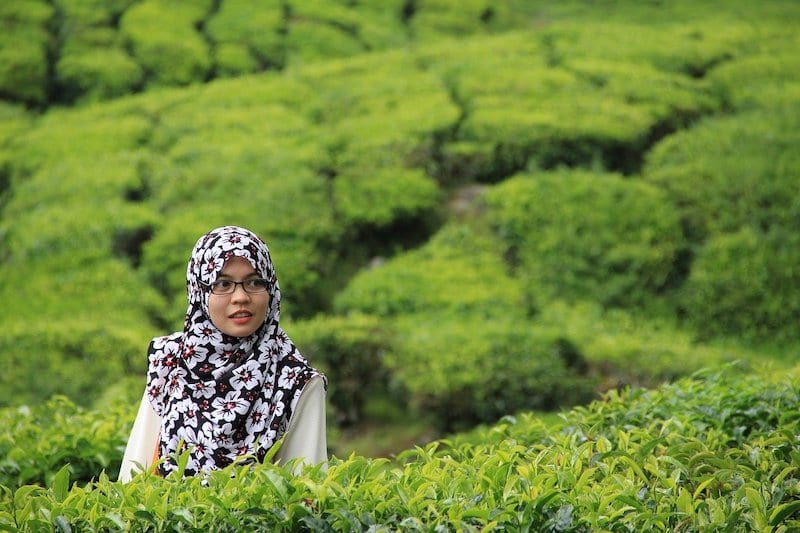
The Chinese and Indian Malaysians wear mainstream western clothes (unless they are dressed for a cultural event).
Some of the Chinese women wear very short-shorts (aka cheek-peekers), and no one seems to care or notice for that matter. However, as a western woman, it’s very different. If I wore the same thing, I’d be gawked at by both sexes. It’s a dichotomy, but it’s true.
I’ve worn a loose shirt with a cut out back and had a woman I know stop me and say, “Oh, you so sexy,” and giggled as she walked away in her cheek-peekers, leaving little to the imagination.
As a traveler, you are free to wear anything you want. However, it’s always best to be more conservative than not. Just because side or underboob is a thing in America doesn’t mean it’s a thing here. In fact, it’s not. And displaying any bit of your boob is pretty disrespectful. But if nothing else, it will undoubtedly draw a lot of attention, probably not the kind you want.
What to wear at…
a temple:

I’ve said this before, don’t be an ass and go into a Chinese or Indian temple with your butt cheeks hanging out. Or anything hanging out for that matter. Sooo beyond inappropriate. Take off your shoes and hat as well. I suggest carrying a shawl to cover your bits up before you go in. At a mosque they’ll give you appropriate attire.
the beach:
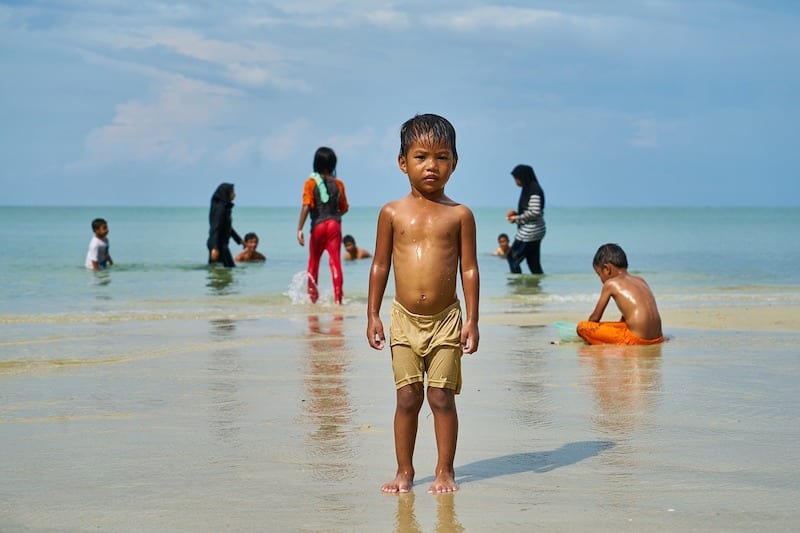
If you are on the beach, a bikini is ok, but cover up when you leave the sand to go anywhere else. Even if it’s just for lunch on the beach, throw on your shorts and tank top.
The Malays will be covered while in the water in some sort of wet suit kind of apparel. Most Chinese don’t like the sun, they too will be covered. It is rare to see Malaysians in bikinis or bathing suits. You might be the only one wearing a bikini, so keep that in mind when you pack.
in the countryside or smaller towns:
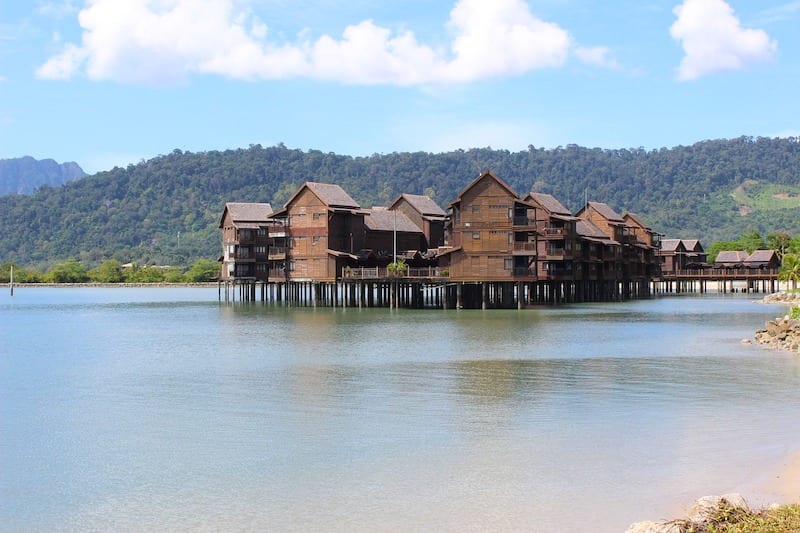
Smaller towns tend to be more Malay than their bigger sisters. You should wear more modest clothing. What you can wear in Kuala Lumpur and Georgetown may not fly in Terengganu. So, bring longer skirts and cover your shoulders. I’m not saying you need to wear a burka, no one here does, and they are actually frowned upon by most Malay women that I know.
I’m just saying be respectful.
3. Do get used to a few gross habits
By all means, this isn’t all Malaysians, not even most, but it happens.
For some reason, slurping, burping and snorting out loud, even in restaurants, happens here. We were brought up never to slurp, burp or bring up a hairball at the table. But apparently there are people here who didn’t get that memo.
There are times when we’ll be sitting down for a meal, and the guy next to me will start making these noises. I can only liken it to a cat bringing up a hairball from the depths of its gut. It is foul, but it happens.
Don’t get me started on the nose-picking. Another thing we were taught not to do in public. But here, if you’ve got something up there, get it out. By all means necessary. That means knuckles deep, people. You’ve been warned.
4. Do Use Air Asia
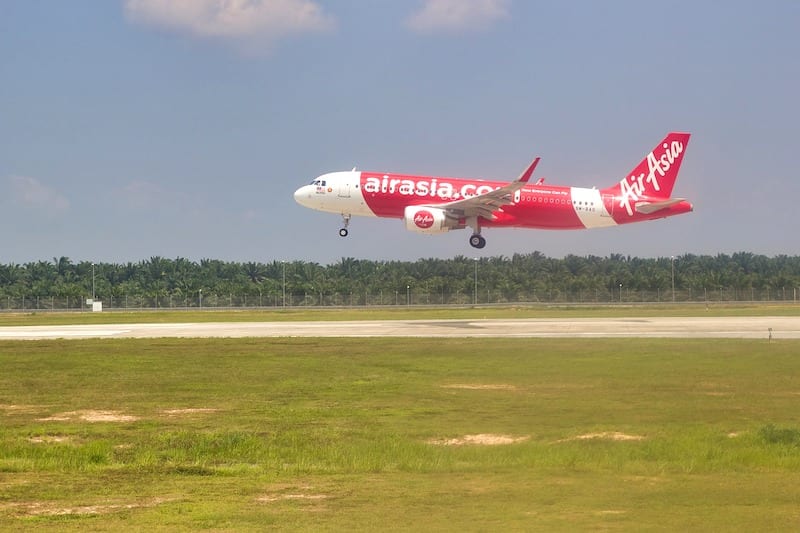
It’s not the nicest airline you’ll ever fly, certainly not the fanciest, but Air Asia is the cheapest. It’s a low-cost carrier that dominates the region. You can fly all over Southeast Asia for pennies. Seriously. It’s rare to spend more than $100 unless you’re flying further afield.
5. Do eat the local food
Eat at the food stalls and the hawker centers. It’s the best food you’ll eat while you are here. That’s where you’ll find the freshest and most authentic food outside of a friend’s kitchen. And it’s only a few dollars per plate.
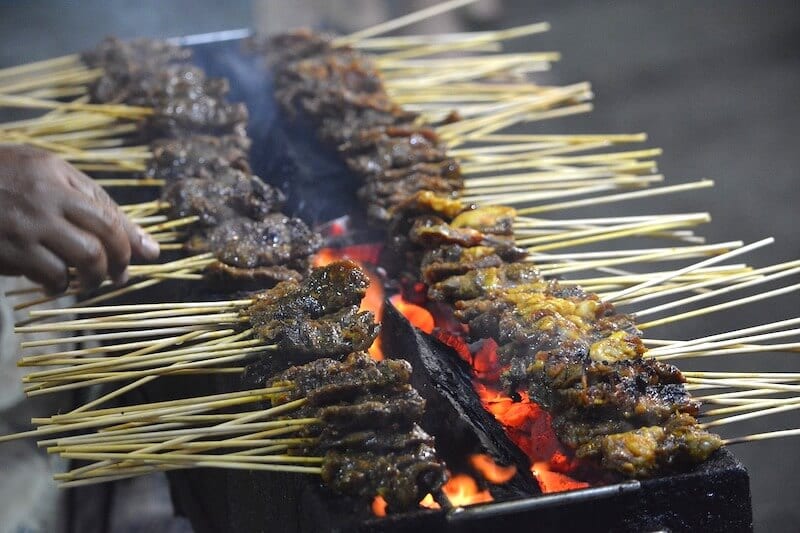
It is more common and less expensive for people to eat out than to cook at home. The stalls are cooking through their food every day. There are rarely leftovers, and stalls close when they run out of food, you know it’s being made fresh every day.
6. Do learn a few words of Bahasa
Since almost everyone speaks English, learning the niceties just makes you a better traveler. At the very least, learn thank you = terima kasih (pronounced ter-eema kah-say).
7. Do talk slowly and use fewer words
English may be the third or fourth language for some Malaysians. Understandably, they may not be fluent. So, if you are speaking with someone and having a little trouble, try speaking slower (not louder) and using fewer words. Instead of saying, “Excuse me, can you tell me how to get to the temple? Say, “Where is the temple?”
I know this seems obvious, but when we first got here, we’d just start chatting away with people and then realize they have no idea what we are talking about. As soon as we slowed down and took out some words, presto-chango, we were chatting away!
8. Do carry Kleenex
This is a big thing to be aware of in Malaysia.
Real talk! You’ll need it, and you won’t be given it here unless you buy it. You won’t get it at the food stalls. And more often than not, you won’t find it in the bathrooms. So be prepared.
There is nothing worse than busting into a public toilet because you are at Defcon 1, only to realize there is no paper in the stall. You’ve already started your… erm… business. Now what? I am not the only one (and you know who you are) who has left their undies in the garbage after using them as toilet paper. It ain’t pretty people, but it happens. Take it from me.
You can buy Kleenex here, you don’t need to travel with it, but make sure you get is asap. You can thank me later after you’ve saved a pair of undies.
9. Do negotiate
If you are staying somewhere longer than a week, negotiate. If you’re at a shop without prices, negotiate. If you are at a market (not a veggie market) but a tchotchke market, negotiate. The only rule of thumb there is DO NOT negotiate if something is less than a dollar. That just makes you look like an asshole.
Take it from me – it’s coming from this asshole. I did that once in Bali. Their money has too many zeros at the end, like millions, and it totally confuses me. I once got all frustrated and thought I was being overcharged only to find out later it was .75cents! 75 cents people, I felt like such a dick!
If you are uncomfortable haggling or negotiating, say something like, “Best price, lah?” Or is that the “Welcome to Malaysia price?”
The lah makes you sound like you’ve been in Malaysia for a while. It’s part of the local vernacular, like how Canadians say “eh.”
10. Do tread lightly
If you wear your shoes indoors, what’s the dif between your home and the sidewalk? ZERO.
Do not enter a home wearing your shoes. The bottoms of your shoes are filthy, and no one wants that in their homes. Do as the Asians do and take them off before you enter.
The same goes for all temples and mosques, no matter the religion. It’s one of the Malaysian taboos.
11. Do visit a mosque
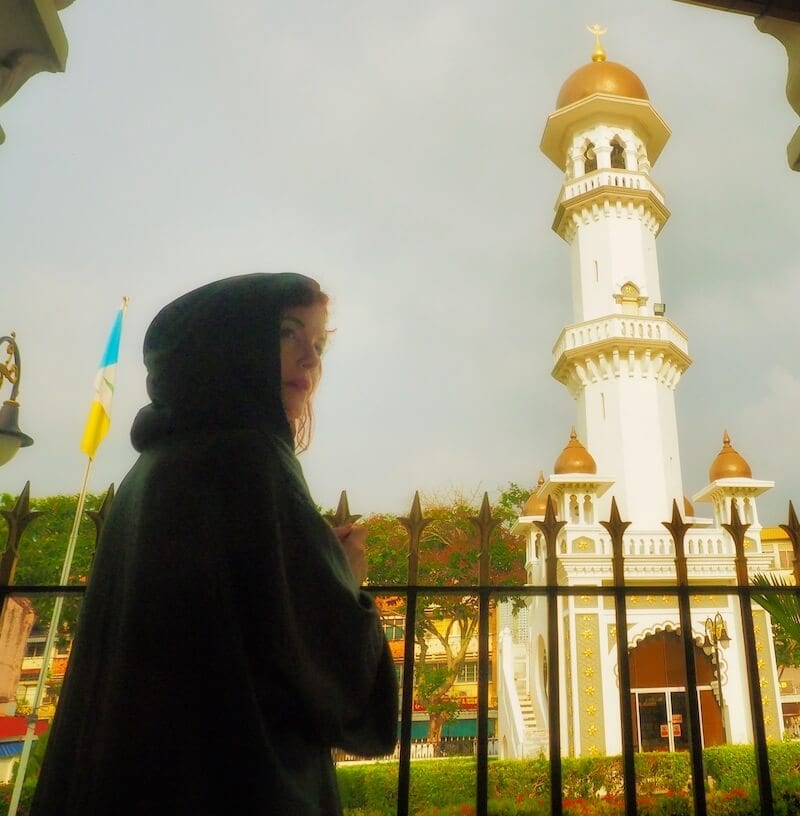 @explore.seasia
@explore.seasia
Most mosques are very traveler friendly and offer free tours. They want to educate you and are happy to share their customs and religion with you. They will provide you proper attire. Try not to go on a Friday because it is their day of prayer, and you will have limited times when you can enter the mosque.
12. Do try durian
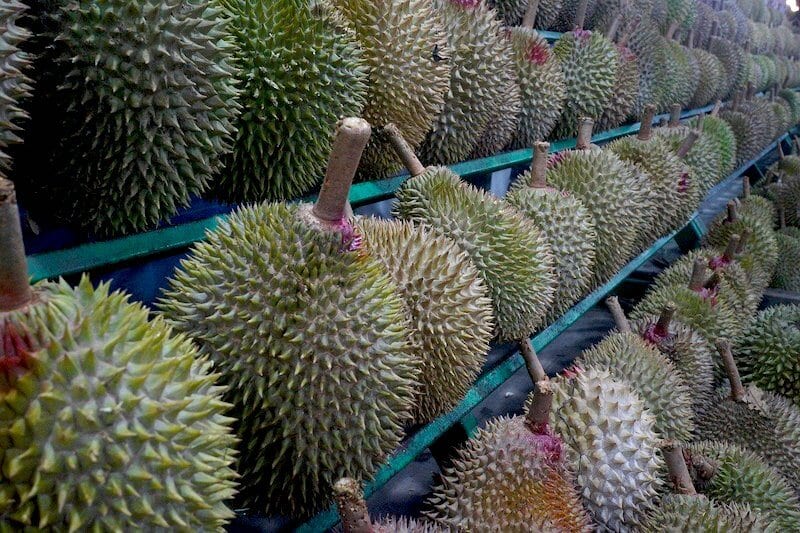
You may hate it, but it’s like going to Italy and not trying the pizza.
Like apples, durians have different varietals. There are Red Prawn, Musang King, D41, and Ganja (yes ganja) durians, and they all have very distinct flavor profiles. Some are more bitter, some creamier, others are sweet and taste like caramel.
It all depends on the kind you choose. If you go to a durian stall and tell them what kind of flavors you like (sweet, bitter, sour), they will guide you to try a durian that is best suited to your palate.
It is also good to go with a few other people so you can try different types. At most stands, you have to buy the whole durian, if you go alone, you won’t be able to taste that many.
You can’t bring it back to your hotel. It is one of the things banned in Malaysian hotels because the smell can be off-putting for some foreigners.
13. Do let your bank know you are traveling to Malaysia
This is good advice anytime you travel, to any country. If you think ahead and let them know, you won’t have to do it from here. Because when you use a credit card here, your bank will stop the payment from going through. They always do.
14. Do get used to the Yell-A-Phone
Some Malaysians aren’t the quietest of people. Sometimes you’ll hear them on their cell phones before you see them. Mark coined the phrase yell-a-phone because there is always someone screaming into their cell phone unnecessarily.
Final thoughts about the dos and don’ts in Malaysia
You just got a sneak peek into how the Malaysian culture is so unique (all this and I’m a poet too!).
Now that you know all sorts of Malaysian etiquette and customs, buy that ticket, and get your booty over here for a visit!
Stick with me, friends. I’ll show you the ropes.
Tell me, did any of these tips surprise you? Did I miss something? Tell me in the comments below! I LOVE comments!
SAVE THIS ARTICLE FOR LATER OR EVEN BETTER, PIN IT AND SHARE IT WITH THE WORLD

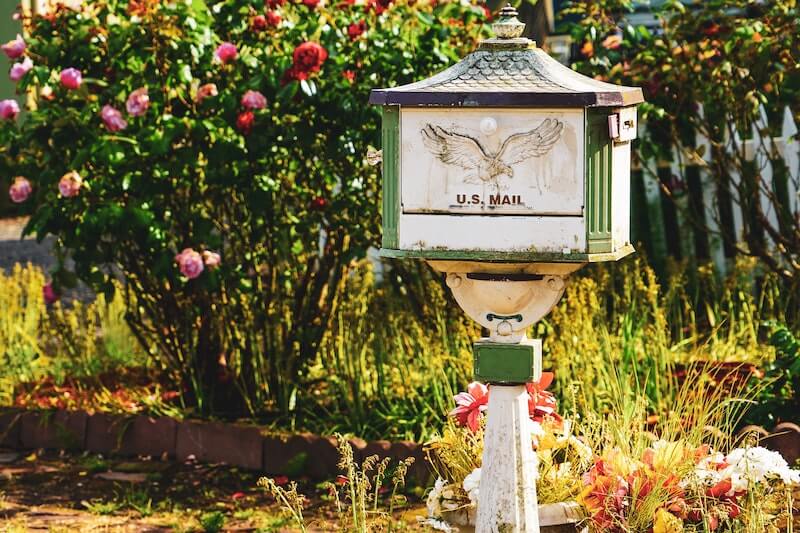
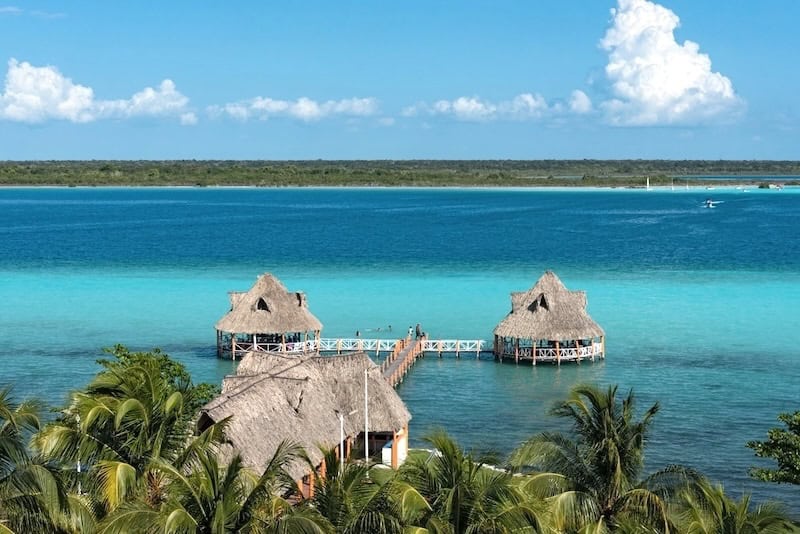

so good and so mean to me
thanks the writter so much
Thank you!
Hi Kirsten,
Really appreciate all your tips as my hubby & I will be moving to KL in July of this year.
We have previously been posted in Vietnam & Cambodia so we are looking forward to living in our third SE Asian country.
What is your best recommendation on which expat area’s to live for a mid forty year old couple with no kids?
Hi Fiona!
That’s so exciting!
As far as where to live in KL. It really depends on what you are looking for? Where is your work? How long of a commute will you have? Do you want to be in the heart of the city in KLCC or Chow Kit? Or prefer leafier neighborhoods just outside it? There are a lot of expat enclaves as well: Ampang, Demansara, and Sri Hartamas.
I would ask the people you’ll be working with what are the best neighborhoods nearby.
I’m sorry I couldn’t be of more help. But good luck to you and welcome to Malaysia (almost)!
Do you recommend a air bnb over hotels/motels? Any tips would be appreciated. Thanks so much.
Hi Rickie,
I don’t recommend one over the other. It just depends on what you are looking for. There are some great hotels and Airbnb here and some crappy ones too.
Hello Kristen,
I hope you and Mark are doing well. My day starts with doing some work and then read your blog as much as I can. Reading your blog has become a part of daily routine for me. So much pleasure/excitement to read. Thank you so much from my heart! I have learned tremendous amount of GREAT info in regards to Penang. Malaysia has been on my mind since we are getting close to retirement. My husband Mike is not sure that is where he wants to retire. However, he is willing to visit & explore first. Looking forward to hearing from you. kyaayy juu tain par taal (thank you in Burmese). Hugs from Dallas.
Hi Sandy!
Thanks for all the love! You are too kind! I love that you are deriving so much pleasure from my blog! I’m over the moon!☾
Malaysia isn’t for everyone so it’s great that you and Mike are coming to see for yourselves. It’s the only way to know if it’s right for you.
I look forward to meeting you in 2021!
Kirsten (not Kristen❣️)
Hi Kirsten!!
Sorry for the typo of your name. I am waiting for all fights to be available. Thank you for your time again.
It’s no biggie! I’m happy to help!
I feel weirdly prepped for a trip I’m not planning (at least not yet) on taking. 😀
Ha! I am so happy to help in any future travels, even if it takes a decade to get you here!
Just found your blog, It’s fantastic. We lived in Sri Lanka for two years and many of these do’s and don’ts are the same. Wonder if that is for the entirety of South Asia? Anyway, wonderful tips and kind of makes me regret not making the effort to get to Malaysia while we lived so close.
Hi Jennifer!
Sorry I missed this! Thank you so much for reading!
I bet there are a lot of similarities around South Asia! It makes sense.
There is so much to see around Sri Lanka! I am sure you saw a lot! You’ll just have to come and visit me in Malaysia one day!
All great tips here Kirsten, and some stuff I never really think about any more. We never get used to the personal questions though, there really is nothing they won’t ask hey!!
I was always a little unsure about the PDAs, some expats warned us to not even hold hands in public, but after being in Penang a while we realised that it was actually ok.
Another fab article…keep em coming! 🙂
Hi Wendy!
Thank you!
I’m so glad you found a few good tips in there! I know, I wonder what would happen if we asked them those questions? Would they answer? Be shocked? Laugh? Who knows. Maybe I’ll try that next time!
XO,
K